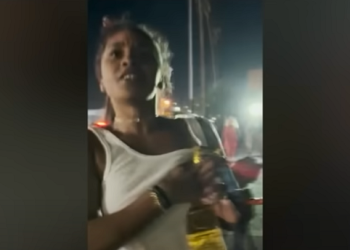The president of a major marijuana industry trade group serving the Los Angeles area said Thursday he has some issues with a recently released draft ordinance aimed at regulating the industry, but believes the process of amending it will be fair.
As president of the Southern California Coalition, Virgil Grant represents hundreds of marijuana related businesses and is one of the more powerful figures in the Los Angeles. industry.
When the City Council released the draft ordinance meant to regulate the coming recreational pot industry last week, the SCC issued a general statement of support but held back any detailed analysis.
But in his first public comments on the draft ordinance, Grant told City News Service he believes the 60-day public comment period will help craft the ordinance more to his liking.
“I have confidence that they will correct some of the things moving forward,” he said. “It is pretty vague what is written right now and there will be more details coming in the next few months, and so we are just going to stay involved in that process.”
The draft ordinance implements the guidelines contained in Measure M, approved by city voters in March and outlines a process to regulate and tax the industry. It also contains other regulatory framework, such as licensing.
“Keep in mind that Measure M gave the power back to the City Council. It took it from the people and gave it back to them, so that being said we are having a lot of confidence that we gave it to them and they will do the right thing,” Grant said.
In November, California voters approved the legalization of recreational marijuana, effective Jan. 1.
“We will continue to have a robust dialogue about the regulatory framework and a healthy debate of Los Angeles’ growing cannabis industry prior to final recommendations being considered by the City Council,” said Los Angeles City Council President Herb Wesson when the draft was released. “I’m calling on all residents and stakeholders to provide comments and feedback on the draft documents to ensure the pending regulations are inclusive of all communities.”
Grant said that among the problems he has with the draft ordinance is how far pot shops would need to be located from some sensitive areas, including churches.
“It’s hard, because so many churches are now located in business districts, with the strorefront churches and everything,” he said.
Grant also had problems with some of the details the ordinance would require for pot shop operators to give to the government, including the names of their investors and personal information like their home address and cell phone number.
“To me, this is why we have corporations, this is why any business has a corporation. My concern is that information, how is it received and how is it protected,” Grant said.
About investors, he said, “There are people who are football players, baseball players who may not want people to know they are invested in a cannabis business, and I feel they should have a right to anonymity.”
Once implemented, the ordinance will replace Proposition D, approved in 2013 by city voters and limited the number of dispensaries within Los Angeles city limits to 135 — the number of dispensaries operating before Sept. 14, 2007.
Despite the limit, pot shops continued to open or stay open in the city in disregard for the law. A map released recently by City Controller Ron Galperin shows more than 1,400 are currently in operation. The city attorney’s office has filed criminal charges against 563 of them.
Grant has been encouraging the city to stop enforcing Prop D and immediately begin implementing Measure M.
“Why are we continuing to use Prop D as a measuring stick when we want to repeal Prop D and implement M? We should no longer be talking about Prop D,” Grant said.






















